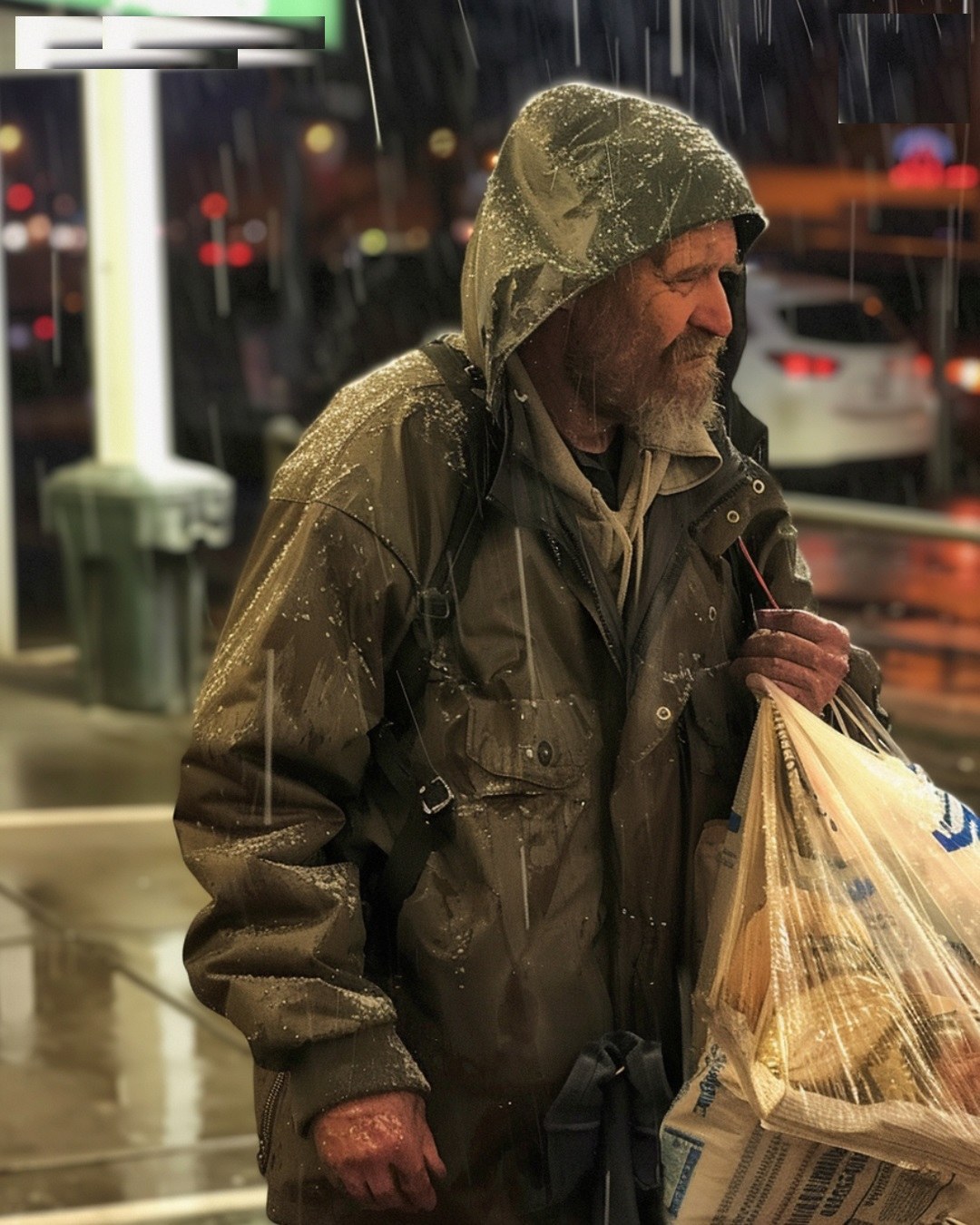The rain lashed against my sweater, seeping through the fabric like it had something personal against me. Each step toward the grocery store was met with a wet squelch from my sneakers, my body shivering from the cold. I crossed my arms, trying to hold in whatever warmth I had left.
“Just keep moving, Emma,” I muttered under my breath. “Mom always said tough times don’t last forever.”
But standing there, soaked to the bone, broke, and exhausted, I wasn’t sure I believed that anymore.
This wasn’t how I pictured life at twenty-three—scraping by, barely keeping my head above water. Just a year ago, everything had been different. Then the accident happened. In one night, I lost both of my parents, the only family I had.
Grief consumed me, and in its wake, I was left with nothing but mounting bills and student debt that felt impossible to outrun.
That evening, my bank balance had dwindled to its last fifty dollars. My fridge was practically empty, and my grocery list was a bare minimum survival plan: bread, eggs, maybe a little pasta if I could stretch it.
“Just get through this week, Emma,” I whispered as the store doors slid open. The harsh fluorescent lights cast everything in an unfeeling, sterile glow, a fitting reflection of how hollow I felt most days.
I grabbed a basket, mentally tallying prices as I wandered the aisles. Bread. Eggs. A can of soup, if it was cheap enough.
I hesitated in front of the soup shelf, fingers tracing the label of my mom’s favorite tomato soup.
“God, Mom,” I murmured. “You always knew how to make something out of nothing. I wish you were here.”
I inhaled sharply and pressed forward, making my way to the checkout. That’s when I noticed him—a man, probably in his late fifties or early sixties, standing hunched over the conveyor belt.
His hoodie was drenched, clinging to his thin frame, and his jeans were frayed at the hems. His hands shook as he counted the coins in his palm, his lips moving as he whispered something under his breath.
“I… I don’t think I have enough,” he stammered, his voice barely audible over the store’s background noise. “Please, I haven’t eaten in two days. Can I just take the bread?”
The cashier, a girl not much older than me, looked visibly uncomfortable. “Sir, I’m sorry, but I can’t—”
“I’ll cover it.” The words left my mouth before I could think twice.
Both of them turned to look at me. The man’s eyes widened in disbelief, his expression a mix of gratitude and shame. “You don’t have to do that,” he said quickly, his voice cracking. “Really, I— I don’t want to be a burden.”
“I know what it’s like,” I answered softly, already pulling out the money. “To feel like the world has turned its back on you. To wonder if anyone even sees you anymore. Let me help. Please.”
His hands trembled as he gripped the edge of the counter. “But… why?”
“Because kindness matters most when it costs something,” I said, hearing my mother’s words echo in my head. “And right now, this matters more than my own groceries.”
It wasn’t a grand gesture. Just a loaf of bread, a can of soup, and a small carton of milk. Hardly enough to change the world—but for him, it meant everything.
His lips quivered as he took the bag from the cashier, holding it like it was something precious. “Thank you,” he whispered, his voice thick with emotion. “You don’t know what this means. I’ve lost everything recently, and I just…”
“Sometimes we all need a little help,” I said, resting a gentle hand on his arm. “Just promise me you’ll take care of yourself.”
“I will,” he nodded, his voice raw with emotion. “And someday, I hope I can pay this kindness forward.”
I watched him shuffle out into the rain, his thin shoulders shaking. I never even got his name.
That night, as I sat in my tiny apartment, eating a simple meal in the dim glow of my kitchen light, my mind kept drifting back to him.
“I hope you’re okay out there,” I whispered to the rain-streaked window. He looked about my father’s age. “Wherever you are, just… stay safe.”
The next morning, my alarm yanked me out of restless sleep at 7:00 a.m. My stomach twisted with nerves.
It was the day of my big interview—my one shot at clawing my way out of this struggle.
Standing in front of the mirror, I adjusted my one and only blazer, trying to smooth out the wrinkles. “Come on, Emma,” I murmured to my reflection. “You can do this. Dad always said you were stronger than you knew. His lioness.”
I slipped on my mother’s ring—the only piece of jewelry I had left from her—and swallowed the lump in my throat. “Give me strength today, Mom.”
The office building was a gleaming fortress of glass and steel, its polished floors echoing the click of my worn heels. It radiated success, the kind I wasn’t sure I’d ever be part of.
Clutching my resume a little tighter, I took a deep breath and stepped inside.
